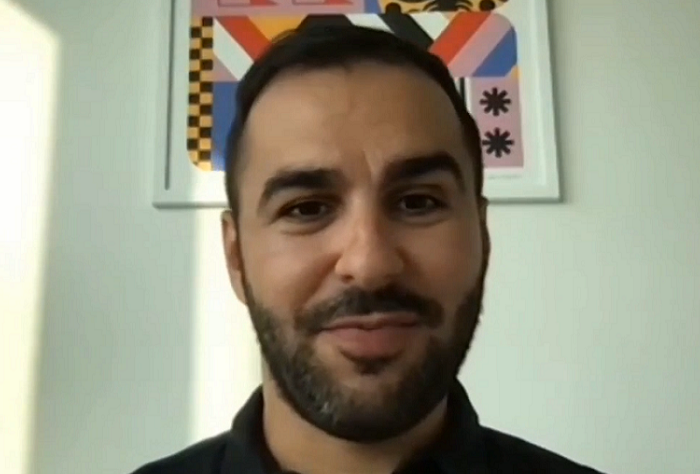Employers have been told they should be focusing on the wellbeing of their staff if they want to ensure a productive workforce.
Iyad Rahme, head of digital – HR at Chalhoub Group in the UAE, also explained firms need to promote workplace health benefits to help support staff and avoid burnout from home working.
“Wellbeing drives productivity, productivity does not drive wellbeing, because if I’m mentally or health wise not able to work I will not be able to be productive,” Rahme (pictured) told the Chartered Institute for Personnel and Development annual conference.
He explained that after promoting the employee assistance programme (EAP) to the workforce for the first time during the pandemic around a quarter of staff contacted it seeking support.
“We noticed about 20% or 30% of our workforce reached out to it and most of the issues were about burnout and not able to cope with productivity and working from home,” Rahme continued.
“So we needed to send a lot of communications, webinars and workshops about how to cope with the new situation and how to understand the different state between working from home and working from the office.
“We had a lot of issues and a lot of people that couldn’t cope and didn’t stop working, because they were just at home all day long and were working until midnight, and we didn’t want that.”
Rahme added the firm was continuing to offer those interventions because with flexible working it wanted people to know when to stop and how to take care of themselves first.
Add value to their health
Suzanne Marshall, clinical governance officer at GoodShape also endorsed the point to focus on employee wellbeing first.
“It’s all about the people who work for you and their wellbeing and health, and what follows then is the productivity and performance,” she said.
“I wouldn’t focus at that [productivity] end, I would always start with the beginning and focus on the employees, their engagement and feeling valued and so adding value to that and to their health.”
Marshall also highlighted research the organisation had conducted which showed that employees who had a second spell of absence with mental health were more likely to leave the organisation.
“If you know that then you can actually be looking the first time an employee goes off sick, and ask what can we do now? What can we do to support people?
“What interventions do we need to make so they don’t go on and have that second spell and then leave our business,” she added.
